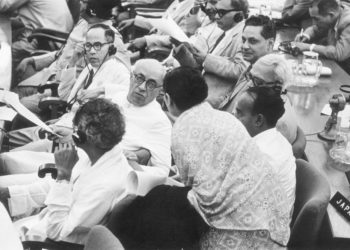I’m Lori Leibovich, the editor of the Well desk, and I’m filling in for Jancee Dunn this week.
I’m not immune to the allure of resolutions, especially health-related ones. For about 25 Januarys, I vowed to drink eight glasses of water a day. And for 25 years, I failed. Usually, I’d make it only a few days before I reverted to drinking water the old-fashioned way: When I was thirsty.
The same thing happened when I resolved to journal, get in 10,000 steps a day, do daily push-ups, do daily crunches and so on.
A few years ago, though, I resolved to do something truly different: Stop setting myself up for failure. Now, I sit down during the first week of January and list the things I did last year that made me feel good. (When I need help remembering, I scroll through the photos on my phone.)
This year’s list included seeing live performances (PJ Harvey in Philadelphia, the Paul Taylor Dance Company in upstate New York), traveling, walking in the park with friends and running a 10K.
Once I’m done with my list, I go into my calendar and schedule time for more of these activities. But I don’t haphazardly pick a few dates. I set a reminder to check which of my favorite artists are touring and when tickets will go on sale; I block off time to research travel destinations and book flights; I email friends and make dinner dates to get my social calendar going. By doing this, I am future-proofing my happiness by planning things I know will feed it.
My process made me wonder whether other people had found interesting ways of thinking about resolutions. So I reached out to a few experts whose work I admire and asked them how they approach resolution season.
Secrets of Good Resolutions
My first call was to Dan Harris, the host of the “10% Happier” podcast and an expert on meditation. (Full disclosure: We went to middle school and high school together, and he will always be Danny to me.) Harris told me that making something meaningful to you is a great way to actually get it done. When he’s trying to lock in a new habit, at the start of the year or any other time, he tries to understand the “why” behind his goal. Harris meditates and exercises, for example, because they make him more effective for other people, he said.
Next, I reached out to Oliver Burkeman, a productivity expert and the author of “Meditation for Mortals.” He said resolutions can sometimes make people feel worse, not better. We often expect massive changes done perfectly from the outset, he explained. So whatever you hope to do in the new year, let yourself start off poorly. “Ten minutes spent very badly jogging,” he said, is “just infinitely more valuable than all the most amazing plans to do it perfectly.”
This reminded me of something that had happened when I started running last year. I always thought I was too slow and creaky to jog, but one day I just downloaded an app and got started. Whenever my “inner drill sergeant” (a term I learned from Harris) chided me as an octogenarian passed by in the park, I focused on the fact that moving my body was still an indisputable win.
Another Way to Think About Habits
What also helped keep me in check was the benevolent coaching I got from Chris Bennett, Nike Running’s global head coach, who narrated many of my guided runs in the app. I called him to ask for his thoughts on resolutions, and he gave me some surprising advice: Don’t do them. Instead, double down on the healthy habits you already have “and then celebrate them,” he said.
Maybe you read before bed each night or avoid grabbing your phone first thing in the morning. Try not to take these habits for granted, he said: “We do really great, awesome things that we would make a resolution to do if we weren’t already doing them.”
Back when I worked in magazines, the January issues were filled with phrases like “New year, new you.” But I’ve learned that the new year doesn’t need to be a time of transformation. Whether you make a resolution, ignore the impulse or just continue what’s already working: The old you is just fine.
Watch these seniors embrace their inner daredevil.
There’s no better way to spend your golden years than taking a 12,500-foot leap through the sky, right? For this group of seniors, skydiving offers feelings of freedom and peace.
Read the article: Retire? They’d Rather Jump Out of a Plane.
‘Medical freedom’ advocates have gained momentum since the pandemic. Here’s how.
For decades, vaccine skeptics were a vocal protest movement. Now, they find themselves much closer to power.
Read the article: How ‘Health Freedom’ Became a Winning Rallying Cry
The Week in Well
Here are some stories you don’t want to miss:
-
Norovirus outbreaks are picking up. Here’s what to know.
-
Are you feeling mentally ready for 2025? Experts have ways to keep your mind healthy in the new year.
-
Relationships are as important to well-being as nutrition and sleep. Here are some tips to strengthen yours.
-
Want to set a fitness resolution that has nothing to do with your appearance? Experts can help.
Let’s keep the conversation going. Follow Well on Instagram, or write to us at [email protected]. And check out last week’s newsletter about New Year’s resolutions for eating and drinking.
The post How to Future-Proof Your Happiness in the New Year appeared first on New York Times.




